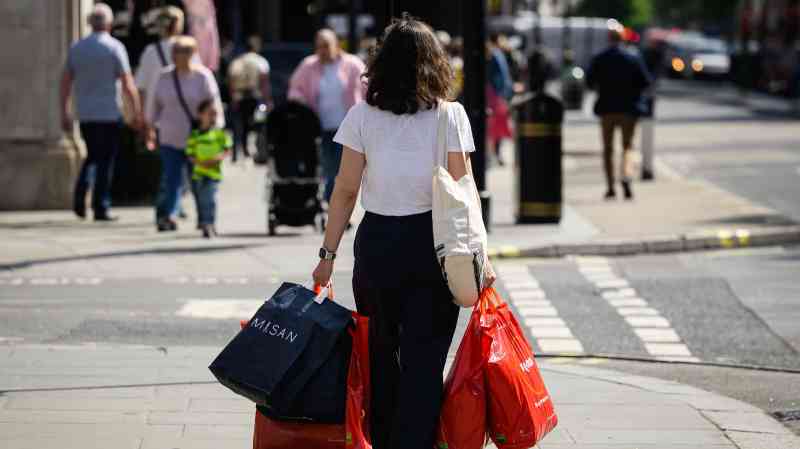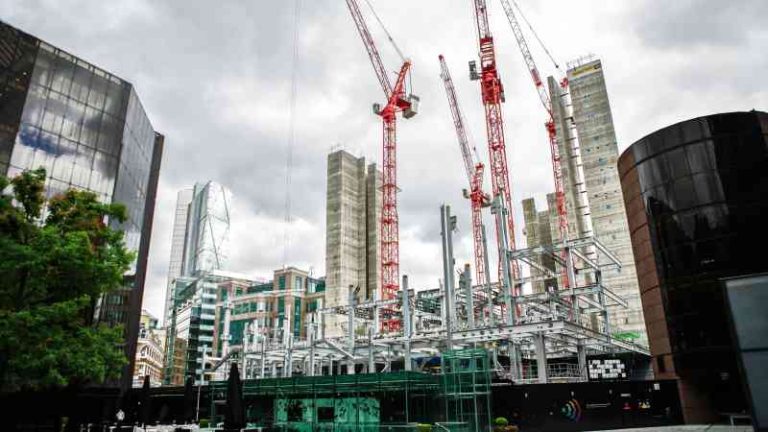Retail sales suffer amid fears over ‘painful’ budget
Fragile consumer confidence took a toll on retail sales last month amid nerves over Labour’s “painful” forthcoming budget and higher energy bills.
Total retail sales rose by 1 per cent over the year to August, up from July’s 0.5 per cent increase but markedly down on the 4.1 per cent growth in the same period last year, according to the retail sales monitor compiled by the British Retail Consortium and KPMG, the professional services firm. August’s rise was also below the 12-month average of 1.2 per cent.
“Despite summer finally making an appearance and a slight rise in consumer confidence, shoppers did not catch up their spending during August,” Linda Ellett, KPMG’s UK head of retail and leisure, said.
She said there remained “some nervousness” about tax rises that could be introduced in the new chancellor’s first budget on October 30, which Sir Keir Starmer warned would be “painful” when he gave his strongest hint yet that taxes would be increased to improve the country’s public finances. The government borrowed £14.5 billion in June, £2.9 billion more than expected.
Helen Dickinson, chief executive of the consortium, said that after a challenging summer for the retail sector, “many will be waiting for the chancellor’s autumn budget before finalising their investment strategies”.
The trade body said that food sales had risen by 2.9 per cent on a three-month annual basis, compared with 8.2 per cent growth in the same three months last year. Food inflation has fallen rapidly over the past year.
Non-food sales fell by 1.7 per cent in the three months to August, against a decline of 0.2 per cent in August 2023. In-store, non-food sales slipped by 2.8 per cent over the quarter, compared with growth of 1.3 per cent at the same time last year.
The recent pick-up in food sales was said to have been driven by more people buying food for summer barbecues and picnics, while seasonal clothing and health and beauty products were in demand as Britons prepared for social events and holidays.
Separate research by Barclays revealed that card spending rose by 1 per cent in August, halting two months of decline, as the recent heatwave prompted people to flock to specialist stores including butchers and delicatessens. Garden centres thrived as sunny weather encouraged shoppers to splash out on their gardens.
The retail consortium noted that while computing sales had done well last month, as students geared up for the start of the new academic year, sales of other back-to-school-related items were lower than usual as people opted for second-hand goods.
Barclays, which monitors about 40 per cent of Britain’s debit and credit card transactions, said its figures showed that 70 per cent of Britons were feeling more confident about their household finances, compared with the previous month’s 65 per cent, while almost half of consumers were treating themselves to affordable luxuries, such as pastries and cosmetics, even while tightening budgets.
“We are seeing an emerging trend of consumers indulging in retail therapy for mood-boosting pick-me-ups,” Karen Johnson, head of retail at Barclays, said. “This is a much more immediate version of the long-running trend of consumers making room in their budgets for memorable experiences.”
Looking ahead to the festive season, the Barclays research also found that 35 per cent of consumers believe that this Christmas will be more expensive than a year ago, with one in five saying they were worried about how they would keep up with those rising costs.
“While cost-conscious shoppers continue to rein in discretionary spending to account for rising prices, especially in the run-up to Christmas, it’s encouraging to see that Britons are feeling noticeably more confident in their personal finances, a strong indicator of future spending as we approach the crucial festive period,” Johnson said.






